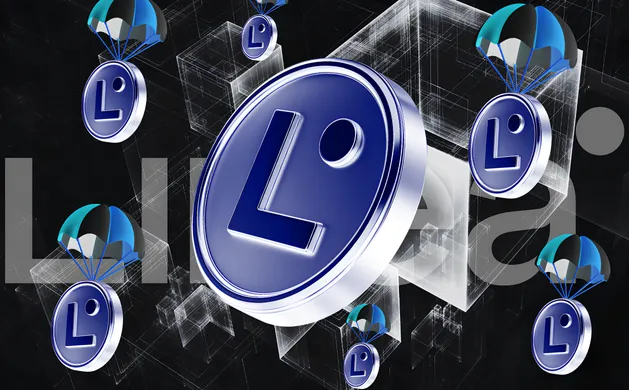ZKsync Admin Wallet Hack Mints $5M in New ZK Tokens

GM. From token mints to cloud meltdowns, today’s headlines highlight what happens when too much control lives in too few hands.
ZKsync gets exploited by its own admin wallet, Canada races ahead with the first spot Solana ETFs, and AWS reminds crypto just how centralized its backbone still is.
Here are these and other top news from the past 24 hours. 👇
ZKsync Admin Wallet Hack Mints $5M in New ZK Tokens
ZKsync confirmed that a compromised admin key allowed an attacker to mint 111 million unclaimed ZK tokens, worth approximately $5 million. The exploit targeted the airdrop distribution contract and briefly increased the circulating supply by around 0.45%.
The attacker used a function designed to sweep unclaimed tokens, redirecting the assets to their wallet in a single transaction. ZKsync’s core protocol, token contract, and governance systems were not affected, and the exploit cannot be repeated.
The compromised wallet, now flagged by investigators, still holds most of the stolen funds and is under surveillance by exchanges and security firms. ZKsync has asked the attacker to return the funds voluntarily, warning of legal consequences.
"This is why ZK is the Endgame. Trust math, not operators," said ZKsync founder Alex Gluchowski, underscoring the need for decentralized security over human-controlled systems. Community concerns have surged over the risks tied to centralized control of token issuance.
Canada to Launch First Spot Solana ETFs
Canada is set to debut the world’s first spot Solana ETFs this Wednesday, according to a TD Bank circular shared by Bloomberg analyst Eric Balchunas. Four asset managers, Purpose, Evolve, CI, and 3iQ, received approval from the Ontario Securities Commission to launch the products. These ETFs will offer staking rewards, potentially providing higher yields than existing Ether staking products.
This puts Canada ahead of the US, where several firms like Grayscale and 21Shares are still waiting on regulatory green lights for similar Solana products. Meanwhile, the U.S. market only has Solana futures ETFs, which have drawn relatively low assets under management. The Canadian approval may serve as a test case for broader institutional demand for Solana exposure.
Ethena Labs Exits Germany After BaFin Pressure
Ethena Labs, the issuer of the synthetic stablecoin USDe, announced on April 15 that it is shutting down its German entity and withdrawing from MiCAR licensing efforts. This comes after Germany’s financial regulator BaFin took enforcement action, ordering a halt to USDe sales due to compliance failures. Ethena has now migrated operations to its British Virgin Islands-based entity.
BaFin cited concerns over Ethena’s reserve practices and flagged its yield-bearing stablecoin (sUSDe) as a potential unregistered security. The regulator ordered a freeze on reserves and redemptions via the German entity, while secondary market trading remains unaffected. Ethena emphasized that most USDe was issued outside of Germany and that its core operations continue under BVI jurisdiction.
AWS Outage Disrupts Binance, KuCoin, MEXC Services
A major Amazon Web Services (AWS) outage caused widespread service issues across multiple crypto exchanges including Binance, KuCoin, and MEXC. The network interruption affected at least 12 AWS services, halting some trades, asset transfers, and access to wallets. Binance and others confirmed partial outages but assured users that all funds remained secure.
The downtime has reignited concerns about centralized infrastructure dependencies in crypto, especially among exchanges reliant on AWS for high-speed trading. Several voices in the community called for exploring decentralized cloud alternatives to reduce single points of failure. By early afternoon UTC, most affected platforms had restored services, though some reported lingering delays.
Data of the Day
Publicly traded companies increased their Bitcoin holdings by 16.1% in Q1 2025, reaching a total of 688,000 BTC worth $56.7 billion, according to Bitwise. Twelve firms bought Bitcoin for the first time during the quarter, including Hong Kong’s Ming Shing and alt-tech video platform Rumble. Even small buys, like HK Asia’s single-BTC purchase, sparked major stock rallies.
Japan’s Metaplanet continued its aggressive Bitcoin accumulation with a 319 BTC buy this week, pushing its total to 4,525 BTC. The firm now ranks as the 10th largest public Bitcoin treasury holder globally. Bitwise’s data shows continued institutional momentum for Bitcoin, especially after Q1 volatility and recent geopolitical tariff shocks.

More Breaking News
- Solayer launched a non-custodial crypto debit card that lets users spend directly from Solana wallets, with Apple Pay and staking rewards coming soon.
- KiloEx suffered a $7.5M exploit likely caused by a price oracle issue, but says the breach is contained and investigations are underway with security partners.
- Janover doubled its Solana holdings to $21M and became the first US-listed firm with a SOL-focused treasury, sending its stock up over 1,700%.
- South Korea pushed Apple to remove 14 unregistered crypto apps, including KuCoin and MEXC, as part of a broader crackdown on non-compliant platforms.
- PumpSwap processed $2.5B in weekly trades as meme coin volume hit record highs, with over 500 wallets earning $1M+ and fees topping $1M in a single day.
- A second Swedish lawmaker proposed adding Bitcoin to national reserves, citing its role in resisting authoritarianism and growing global adoption.
- Tether will direct its Bitcoin hashrate to Ocean mining pool, aiming to decentralize block-building and reduce dependency on dominant mining intermediaries.
- Phantom Wallet is being sued for $3.1M over an alleged design flaw that led to the theft of $500K in meme coins, which it denies as “entirely without merit.”
For the latest updates on digital asset markets, follow us on X @Datawalletcom.
.webp)
Written by
Jed Barker
Editor-in-Chief
Jed, a digital asset analyst since 2015, founded Datawallet to simplify crypto and decentralized finance. His background includes research roles in leading publications and a venture firm, reflecting his commitment to making complex financial concepts accessible.







